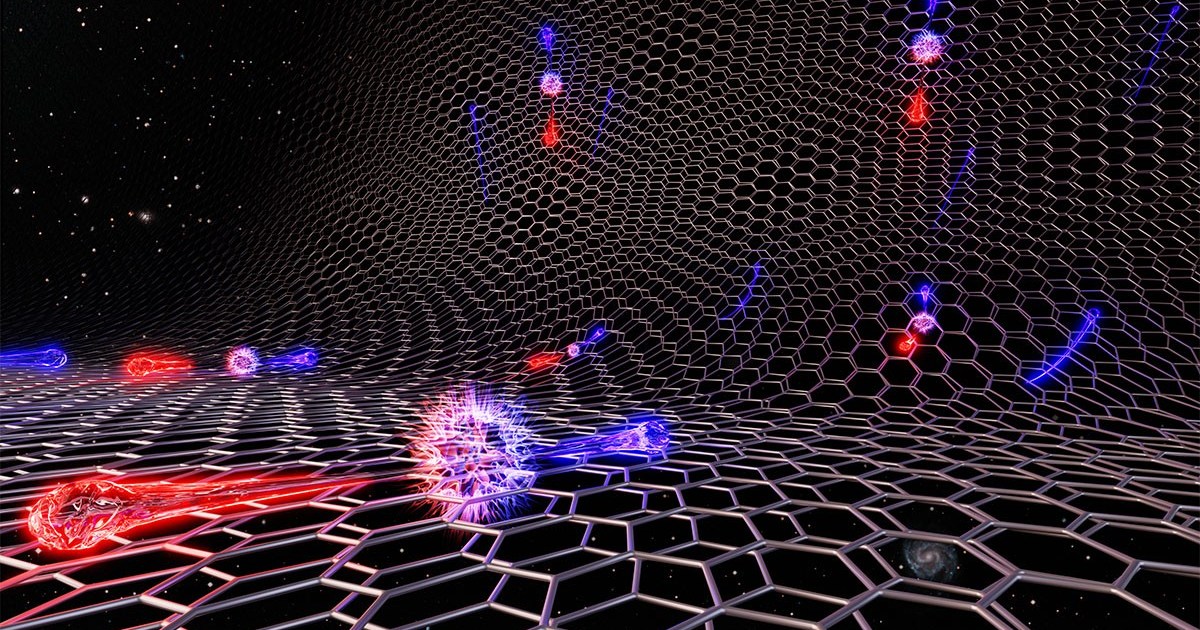Fort Fun Indiana
Diamond Member
- Mar 10, 2017
- 110,236
- 99,369
- 3,645
If unicorns make frisbees, how can dogs do calculus?If Christianity gave rise to modern science, how can it be religion v science?
Follow along with the video below to see how to install our site as a web app on your home screen.
Note: This feature may not be available in some browsers.
If unicorns make frisbees, how can dogs do calculus?If Christianity gave rise to modern science, how can it be religion v science?
Our perception of reality cannot change it.If unicorns make frisbees, how can dogs do calculus?
No doubt!Our perception of reality cannot change it.
If you're standing in the road when a bus is coming toward you, you might perceive that it's not really coming at you but it's still going to hit you if you don't move out of the way.
Your pemise is dead on arrivalI struggled with where, what forum (Science or Religion and Ethics), to put this: "Belief in a God, the existence of a higher power, and the concept of an afterlife. Science or Religion?"
Here we are...
Somebody said "Because there is a law such as gravity, the universe can and will create itself from nothing. Spontaneous creation is the reason there is something rather than nothing, why the universe exists, why we exist."(1)
I believe some people unknowingly, and some people purposefully conflate spontaneous creation with spontaneous generation, which takes any discussion of scientific theories into debating religion as somehow being just another scientific theory. There exits no science behind claims religions make for why we and the universe exists.
We now have scientists claiming they've created matter from nothing in a groundbreaking experiment. If they have, their claims can be proven by successfully repeating any experiment.

Scientists create matter from nothing in groundbreaking experiment
Scientists have managed to create matter out of nothing, a quantum physics feat previously thought impossible.bgr.com

70-year-old quantum prediction comes true, as something is created from nothing
In our common experience, you can't get something for nothing. In the quantum realm, something really can emerge from nothing.bigthink.com
1: Stephen Hawking
Xianity did not "allow" science to proceed.If Christianity gave rise to modern science, how can it be religion v science?
Amindless post if ever there was...I struggled with where, what forum (Science or Religion and Ethics), to put this: "Belief in a God, the existence of a higher power, and the concept of an afterlife. Science or Religion?"
Here we are...
Somebody said "Because there is a law such as gravity, the universe can and will create itself from nothing. Spontaneous creation is the reason there is something rather than nothing, why the universe exists, why we exist."(1)
I believe some people unknowingly, and some people purposefully conflate spontaneous creation with spontaneous generation, which takes any discussion of scientific theories into debating religion as somehow being just another scientific theory. There exits no science behind claims religions make for why we and the universe exists.
We now have scientists claiming they've created matter from nothing in a groundbreaking experiment. If they have, their claims can be proven by successfully repeating any experiment.

Scientists create matter from nothing in groundbreaking experiment
Scientists have managed to create matter out of nothing, a quantum physics feat previously thought impossible.bgr.com

70-year-old quantum prediction comes true, as something is created from nothing
In our common experience, you can't get something for nothing. In the quantum realm, something really can emerge from nothing.bigthink.com
1: Stephen Hawking
∀F(Fx ↔ Fy) → x=y.
There exists no evidence for religious claims.There exist many evidences for religious claims by scientists
So somebody who writes like a feral child thinks mere assertion proves his point.Xianity did not "allow" science to proceed.
You post non-stop stupid mindless idiociesThere exists no evidence for religious claims.
That's why they remain religious claims instead of science.
Irrelevant to my comment.over 65% of Nobel prize winners between 1901 and 2000 believed in God
We're sure most other readers correctly processed their mother tongue that time. The claim to xian protection-racket authoritarian arrogance was the subject of that post.So somebody who writes like a feral child thinks mere assertion proves his point.
How quaint !
The xian scientist-opportunist, however, is always tempted to laud its god over others (or even none), while at the same time claiming a peudo-piety.Irrelevant to my comment.
When they are performing science religion has nothing to do with it.
So you didn't touch my premise. And it's not my premise anyway. It's the simple definition of those words.
Your comment is stupid is what I was proving. IT does have nothing to do with it THEREFORE since we can only be speaking of the ONE MIND that every scientist has, you cannot apply two criteria.Irrelevant to my comment.
When they are performing science, religion has nothing to do with it.
So you didn't touch my premise. And it's not my premise anyway. It's the simple definition of those words.
Saint Thomas Aquinas calls our natural knowledge of things the “preambles of faith” or the “presuppositions of faith” (cf. III Sent. d. 24, a. 3, sol. 1). The preambles or presuppositions of faith include the premises that God exists, that God is one, incorporeal, and intelligent."The existence of God and other like truths about God, which can be known by natural reason, are not articles of faith, but are preambles to the articles; for faith presupposes natural knowledge, even as grace presupposes nature, and perfection supposes something that can be perfected. Nevertheless, there is nothing to prevent a man, who cannot grasp a proof, accepting, as a matter of faith, something which in itself is capable of being scientifically known and demonstrated.
Summa theologiae Ia, q. 2, a. 2, ad 1.
No, that's all wrong and is the obsolete prattling of an obsolete philosopher.Your ;comment is stupid is what I was proving. IT does have nothing to do with it THEREFORE since we can only be speaking of the ONE MIND that every scientist has, you cannot apply two criteria.
No, it is not the definition of the words either.
There are 3 forms of belief: Fideism, Natural Theology (resulting in a creator) and Revelation-based Faith
And reading this stupid reply I see yet another problem you don't even know about.
Your position and any position COMES AFTER your first principes, so If I think I have no free will or that everything else in the world is an illusion (which by the way is a Faith by your "definition") then I can't give any opinion about revelational faith or NAtural Theology, CAN IT ??????
there are certain premises that are known either in themselves or can be known by philosophic investigation. These premises can be known by the pagan. Saint Thomas Aquinas explains:
Saint Thomas Aquinas calls our natural knowledge of things the “preambles of faith” or the “presuppositions of faith” (cf. III Sent. d. 24, a. 3, sol. 1). The preambles or presuppositions of faith include the premises that God exists, that God is one, incorporeal, and intelligent. None of these facts pertain to the Gospel and they are not articles of the Faith per se

 www.usmessageboard.com
www.usmessageboard.com
The Nobel claim is anachronistic and automatonic. It fails to update itself to the actual evolution of science. How many xians are involved in this more recent claim?
(4 weeks ago) Scientists Say There May Have Been a Second Big Bang
Please watch the video to determine if there's any religion in it and get back to us.WHAT A BLAZING MORON YOU ARE. SO NOW ONLY ANTI-BELIEF IS NOT HISTORICALLY CONDITIONED>
YOU ARE A SUPER_NOVA OF BLAZING STUPIDITY